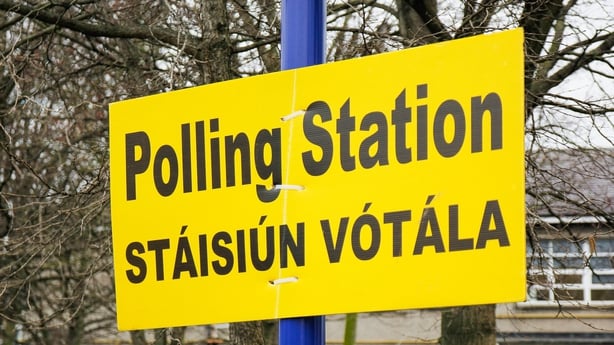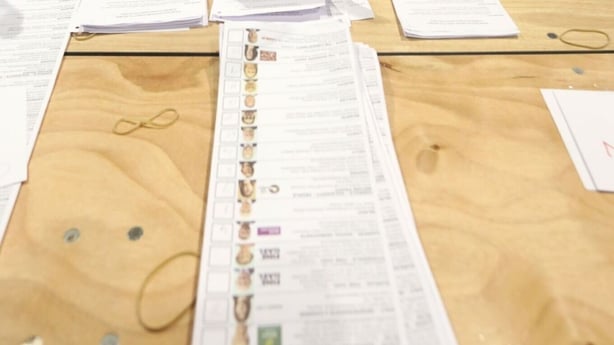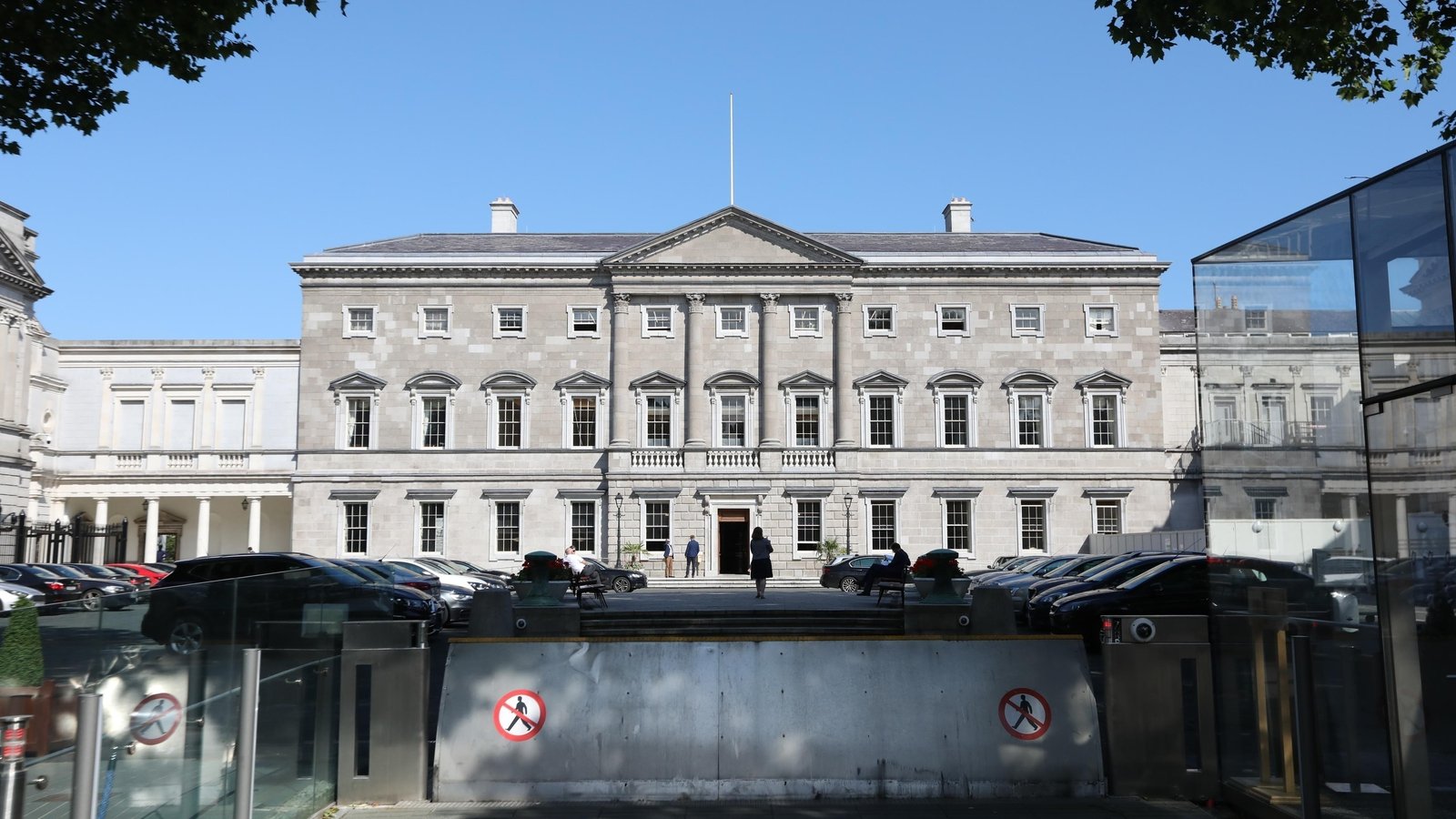How to vote in local, European, Limerick mayor elections

Voting takes place tomorrow for three electoral contests – the local elections, the European elections and the Limerick mayor election.
Polling stations are open between 7am and 10pm.
Most people will vote in the local and European elections. However voters in Limerick city and county will also vote for the country’s first directly-elected mayor.
Below, RTÉ News outlines the procedures for voting in the local, European and Limerick mayor elections.
How to check the register
You can check if you are eligible to vote by visiting www.checktheregister.ie.
If your name and address are correct on the register and you are eligible to vote at the upcoming polls, you will be able to do so.
If you are not registered, you are no longer able to apply as the deadline for applications for the European, local and mayoral elections passed on 20 May.
Applications to register or change of details will not be considered until after 7 June.
In order to be eligible to vote, you must be 18 and living full time in the State.
EU citizens living full time in Ireland, and are registered to vote, are eligible to vote in European and local elections.
Registered British citizens living in the State are eligible to vote in the local elections.
All other people who are registered and live full time in Ireland are eligible to vote in local elections.
Polling cards and stations
Most voters will have received a polling card to their registered home address.
The polling information card includes your elector number, the name of the polling station where you will go to vote, a formal statement explaining which election you will be voting in and the opening and closing times of your polling station.
You can only vote in your designated polling station.

Polling stations are often local schools or community buildings that are close to your registered address.
It is not essential to bring the polling card to a polling station.
However, you will be asked for your name and address at the polling station, and according to the Electoral Commission, you may be asked for identification such as a driving licence or passport.
Other documents that can be used to prove your identity include: an employee identity card containing a photograph; a student identity card issued by an educational institution and containing a photograph; a travel document containing name and photograph; a bank or savings or Credit Union book containing address in constituency; a Public Services card; a Temporary Residence Certificate; a Garda National Immigration Bureau Card; an Irish Residence Permit.
Or the following items accompanied by a further document which establishes the address of the holder in the constituency: a cheque book; a cheque card; a debit card; a credit card; a birth certificate; a marriage certificate.
How to fill out the ballot paper
All contests will be decided using the proportional representative-single transferable vote (PR-STV) electoral system.
Using the PR-STV system, voters can vote for as many or as few candidates as they wish.
Each ballot paper contains short instructions on how to vote.
Pencils will be provided at the polling station, but you can bring your own pen or pencil if you wish.
Read more:
Latest Elections 2024 stories
How long is a 27 candidate ballot paper?
The ballot paper will also show a list of names, in alphabetical order, party emblems and images of each candidate.
There will be a box to the right of each candidates name and you mark your preference for each candidate in the box to the right.
You mark a ‘1’ in the box beside your first-choice candidate, and if you wish, a ‘2’ in the box next to your second-choice candidate, a ‘3’ in the box beside your third-choice candidate, and so on.
By marking a ‘1’ beside a candidate, you are declaring: ‘I wish to vote for this candidate.’
By marking a ‘2’ beside a candidate, you are declaring: ‘If my first choice candidate does not need my vote because they have already been elected or excluded from the count, I want my vote to go to this second candidate.’
To ensure your vote is counted make sure your preferences are marked as clearly as possible.

If you do not want to fill out a preference for all candidates on the ballot paper, the box beside those you are not voting for must be left empty.
Do not make any other mark on the ballot paper because if you do, your vote may be considered invalid or spoilt and therefore not be counted.
Photographing your ballot paper is forbidden and political badges or memorabilia are not allowed inside the polling station.
Voters with disabilities
Special arrangements to assist those with an illness or disability to exercise their voting rights are in place.
You can vote at an alternative polling station if the local station is inaccessible.
You can be helped to vote at the polling station by a companion or the Presiding Officer for people with a visual impairment, physical disability or literacy difficulty.
You can vote using a ballot paper template if you have a visual impairment. You can also vote by post or vote at a hospital, nursing home or similar location if you live there.
Counting
All ballot boxes will be opened at 9am on Saturday morning and segregated into the three separate elections and verified.
Counting in the local elections will begin first, getting under way around lunchtime on Saturday with the first results expected that evening.
Counting in the European elections will begin on Sunday morning, but no counts will be declared until after 10pm Sunday night.
Results in these contests will likely take several days to conclude.
Counting in the Limerick mayoral election will begin on Monday morning with a result expected later that day.
Local elections
Voters will go to the polls tomorrow to elect almost 1,000 local councillors in Ireland, with 949 city and county council seats to be filled across 31 local authorities, which are divided into 166 local electoral areas (LEA).
European elections
A total of 73 candidates have declared for the European elections across the three constituencies of Ireland South, Midlands-North-West and Dublin.
Ireland will elect a total of 14 Members of Parliament (MEPs) across the three constituencies.
There are 23 candidates running in both Dublin and Ireland South, while 27 candidates are contesting the Midlands-North-West constituency.
Four MEPs will be returned in Dublin.
The South constituency covers Carlow, Clare, Cork, Limerick, Kerry, Kilkenny, Tipperary, Waterford, Wexford and Wicklow and elects five MEPs.
Midlands-North-West includes counties Cavan, Donegal, Galway, Kildare, Laois, Leitrim, Longford, Louth, Mayo, Meath, Monaghan, Offaly, Roscommon, Sligo and Westmeath.
It also elects five MEPs.
Limerick mayor election
Voters will elect a mayor for Limerick city and county for a five-year term.
There are 15 candidates in the running for the position.





